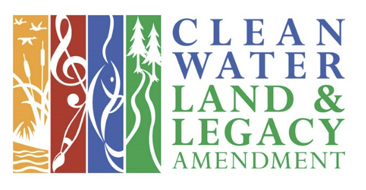|
The Minnesota Department of Natural Resources Parks and Trails Division, the Metropolitan Council Metropolitan Regional Parks, and the Greater Minnesota Regional Parks and Trails Commission are partnering with Forecast Public Art to launch Creating Belonging in Minnesota Parks — Artist Residency in the Parks Pilot Program in parks across Minnesota exploring community and belonging. The selected Minnesota-based artists-in-residence will research and engage with a park, trail or park system and its communities and then use that research to develop new work(s). Unlike traditional residency opportunities, this program focuses on how artists can serve as partners to and ambassadors for the parks and contribute not just art, but ideas.
The goal of the Minnesota Parks Artist-in-Residence Pilot Program is to enhance a sense of welcoming and belonging to park users. We hope that this pilot helps foster deeper community engagement and relationship-building in state and regional parks; improves access to Minnesota parks and trails; and increases collective appreciation for park uses, outdoor recreation, and natural resources, especially in underserved communities. This is a paid opportunity for artists that aims to address unique opportunities and challenges around creating belonging in our public parks. This residency is modeled on artist residencies in government, which embed artists into public systems. Embedding an artist in a park or a park system will allow the selected artists to apply their own creative perspectives and skills to foster a greater sense of belonging. All selected artists will be a part of a cohort of 9, and will meet with other artists regularly to foster a sense of community and to share ideas. Legacy funds dedicated to coordination among partner agencies will fund artists’ time, and project materials/expenses. The artwork will be determined in collaboration between the artist and the host site. Artists will also build connections in the local community and could collaborate with other parks in the region. Artistic outputs may take the form of community conversations, music/dance/theater/performance, ephemeral installations, 3D sculpture, projection/lighting projects, and other temporary works. Artists will spend an average of 20 hours each week from July 2024 – June 2025 as the Artist-in-Residence. Artist-in-Residence position Timeline: 12 months (August 2024 to August 2025) Time commitment: average 20 hours/week (part-time) Stipend: $40,000; Materials budget: $14,000 Location: A Minnesota park or a park system (find the full list of host sites at the Submittable application link) Deadline to apply: July 21, 2024, 11:59 pm Information session: Tuesday, June 25, 2024, 4:00 pm (Register for information session) See the website for additional information. The Greater Minnesota Regional Parks and Trails Commission (GMRPTC) has released its 2023 Policy and Planning Report. The report, due to the Legislative Legacy Committees by January 15 each year, includes a review of the Legacy grant recommendations for the Fiscal Year 2025 funding cycle, the criteria and selection process used, an overview of Greater Minnesota's regional system development, and milestone achievements for the calendar year.
The Mountain Bike Trail Development – Guidelines for Successfully Managing the Process guidebook, created in conjunction with the International Mountain Bike Association and Rock Solid Trail Contracting, was published in May. A groundbreaking report was released capping a 2-year survey project as part of the Parks and Trails Legacy Partners which surveyed park usage using state-of-the-art location based data. The Greater Minnesota system continues to grow adding 8 facilities in 2023 for a total of 77 regionally designated parks, trails, and special feature facilities across 80 Greater Minnesota counties. The Commission received 20 eligible funding applications and recommend $16,354,035 in awards to 14 applicants and an emerging opportunities fund. The full report is available for download here. Understanding visitation to Minnesota’s parks and trails is essential for planning, programming, and investment decisions. Visitation estimates generally rely on methods such as intercept surveys, in-field visitation counts, and automated trail counters. Visitation estimates using passively-generated data sources may offer opportunities to complement existing strategies.
This project used aggregated and anonymized location-based services (LBS) data to estimate and evaluate visitation to Minnesota parks and trails. LBS data gives information about when and where people travel. This approach provides unprecedented detail about how visitors use parks and trails and broadly describes who those visitors are. Visitation and use patterns can be analyzed at annual, monthly, weekly, and hourly time intervals. This data makes it possible to understand how people travel to parks and trails and where they are coming from. This data is intended to supplement, but not replace existing data used for decision making. In addition to the full report published previously, this project has been enhanced by an interactive webpage. The webpage simplifies the reading of the report by breaking it into sections for an overview, parks, trails, frequently asked questions, etc. Each section also includes interactive pieces to all the viewer to look at results for individual parks and trails or to view the information for just the MN Department of Natural Resources parks and trails, the Greater Minnesota Regional Parks and Trails, and the Twin Cities Metro parks and trails. This project was created by a collaboration of the Minnesota Department of Natural Resources, the Greater Minnesota Regional Parks and Trails Commission, and ten metropolitan regional park implementing agencies. This project used funds from the State of Minnesota Parks and Trail Legacy Fund. Minnesota Parks and Trails Usage Report Website The new guidebook for mountain bike trail creation, Mountain Bike Trail Development: Guidelines for Successfully Managing the Process are the world’s most comprehensive mountain bike trail resource. Four years in the making, the guidelines are made possible by Clean Water, Land and Legacy amendment funding. While the GMRPTC conceived of and spearheaded the project, other agencies recognized the importance of the guidelines and assisted with content development and review. We are pleased to partner with IMBA (the International Mountain Bicycling Association) and Rock Solid Trail Contracting, along with author Jake Carsten to bring this guide to fruition.
Access the Guidelines via a free online Flipbook. Download a PDF file of the guidebook (116MB). Get additional information regarding the Guidelines. 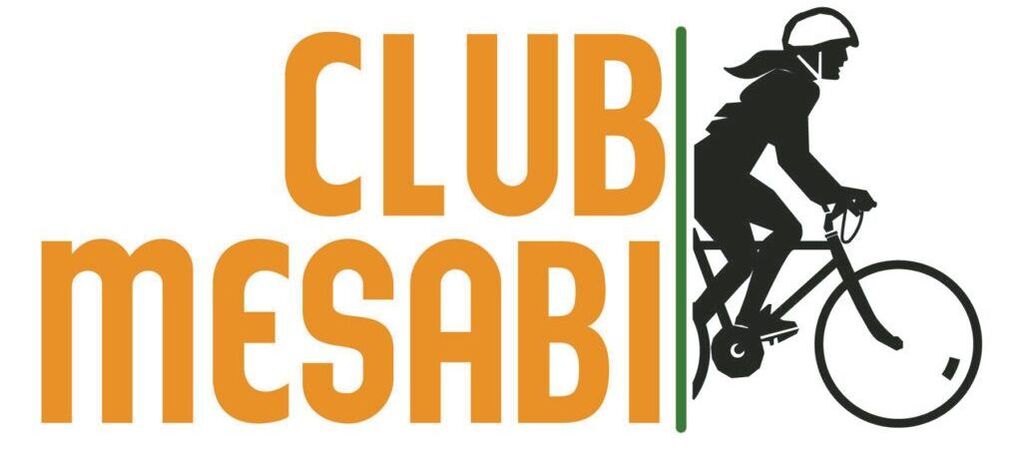 Club Mesabi is the "Friends" organization of the Mesabi Trail, a paved bicycle trail stretching from Grand Rapids to Ely. The Trail is owned and managed by the St Louis and Lake Counties Regional Rail Authority (RRA). Club Mesabi is a 501(c)(3) non-profit corporation, separate & autonomous from the RRA with its own Board of Directors. Club Mesabi is under contract with the RRA to fulfill our stated mission – "To promote and support the Mesabi Trail and educate and advocate for use of the Trail as part of a healthy lifestyle". Club Mesabi hosts an annual bicycle tour on the Mesabi Trail. Go to https://mesabitrail.com/club-mesabi-executive-director/ for more information and to apply. Applications are due on March 31, 2023. The Greater Minnesota Regional Parks and Trails Commission (GMRPTC) has released its 2022 Policy and Planning Report. The report, due to the Legislative Legacy Committees by January 15 each year, includes a review of the Legacy grant recommendations for the Fiscal Year 2024 funding cycle, the criteria and selection process used, an overview of Greater Minnesota's regional system development, and milestone achievements for the calendar year.
The Commission received 17 eligible funding applications and recommend $11,398,765 in awards to 14 applicants. The year was very productive including (3) three additional mountain bike trail system usage surveys, (7) seven campground visitor satisfaction and occupancy surveys, the completion of the Mountain Bike Trail Development Guidelines, (7) seven new designated facilities, and a special grant cycle for track wheel chairs. The full report is available for download here. The Greater Minnesota Regional Parks and Trails Commission (GMRPTC), in conjunction with the Southwest Regional Development Commission (SRDC) has released campground use studies for (7) seven regionally significant parks in southern Minnesota.
The studies are part of an ongoing effort of the GMRPTC to make the best decisions based on the best recreational data. As outdoor recreation continues to grow, the importance of having the most current information regarding the recreational desires of the people becomes critical. In the reports, you will find detailed information regarding camper recreational experiences, characteristics, demographics, and their economic impact. We would like thank our partners at the SRDC, especially the report authors Rosemary Bruce-White and Jessica Welu; as well as Justin Schroyer. If you have questions or comments, please contact us: Renee Mattson – Executive Director Joe Czapiewski – System Plan Coordinator [email protected] [email protected] Garvin Park Report Hole in the Mountain Park Report Lake Washington Park Report Memorial Park Report Plum Creek Park Report Ramsey Park Report Twin Lakes Park Report The Department of Natural Resources (DNR) announces grant funding opportunities for park and trail projects across Minnesota. Applications are now being accepted for the following grant programs: outdoor recreation, natural and scenic area, regional trail, local trail connections and federal recreational trails.
These grants help local governments throughout the state create partnerships with the DNR to fund projects ranging from local parks, regional trails to trail connections. Eligibility requirements, deadlines, contact information and other details can be found on the DNR Web site at mndnr.gov or on the following program links: Outdoor Recreation Grant Program Natural and Scenic Area Program Federal Recreational Trail Program Regional Trail Grant Program Local Trail Connections Grant Program The Greater Minnesota Regional Parks and Trails Commission coordinated a survey of three mountain bike systems in Greater Minnesota during the summer of 2022. The Parks and Trails Council of Minnesota was hired to conduct a visitor intercept survey and trail user counts at the Lake County Split Rock Wilds, Winona Bluffs Traverse, and Tioga Recreation Area mountain bike areas. These three systems were chosen for their distinctly different terrain, geographic location within the Greater Minnesota System and the diversity of visitor profiles to their area. The information gathered in the research will help inform planning and marketing efforts by the GMRPTC and our collaborative partners. Additionally, the information provides guidance for future trail expansions and development of new systems. In this report you will find detailed information about the user counts and the visitor profiles for each system. The report begins with a trail count summary that provides a starting point to understand the unique differences and the similarities of the average daily traffic. We’d like to thank our friends at the Parks and Trails Council of Minnesota, Andrew Oftedal, Research and Policy Manager, who led the effort, compiled the data, wrote the reports and spent time at each of the locations to ensure the counts and surveys were of the highest accuracy and Executive Director Brett Feldman, who filled many survey shifts and found grant funding to keep the project on budget. It was a pleasure working with them! If you have questions or comments, please contact us: Renee Mattson – Executive Director Joe Czapiewski – System Plan Coordinator [email protected] [email protected] 2022 Mountain Biking Count Summary Lake County Split Rock Wilds Topline Report Lake County Split Rock Wilds Visitor Profile 2022 Winona Bluffs Traverse Topline Report Winona Bluffs Traverse Visitor Profile 2022 Tioga Recreation Topline Report Tioga Recreation Visitor Profile 2022 above photo Lake County Split Rock Wilds, top photo Winona Bluffs Traverse
Legacy Fund grants to enhance 14 regional parks and trails in Greater Minnesota
Minnesotans from the Northwest Angle to Olmsted County and many places in between will soon benefit from nearly $11.4 million in enhancements to 14 regional parks and trails. Each year, the Greater Minnesota Regional Parks and Trails Commission (GMRPTC) reviews applications for upgrades to designated parks and trails across the state, then forwards its recommendation to the Minnesota Legislature for approval through the Parks and Trails Legacy Fund. The Legislature has annually approved GMRPTC requests, since Legacy Funds are part of the 2008 Minnesota Clean Water, Land and Legacy Amendment and may only be spent to support parks and trails of regional or statewide significance. “We were impressed with the many thoughtful and creative approaches we reviewed for broadening Minnesotans’ enjoyment of their beautiful parks and trails, which is why we’re recommending fully funding each of the 14 selected requests,” said GMRPTC Executive Director Renee Mattson. Since its creation in 2014, the GMRPTC has awarded more than $72 million in grants to 109 projects in the state’s 74 designated parks and trails. Combined with $25.6 million in community matches to date, grants are used to fund infrastructure improvements, land acquisitions, new facilities, trail rehabilitation, connecting people with the outdoors and more. The 14 parks and trails recommended for $11,398,765 in Fiscal Year 2024 funding are below. District numbers in the grid refer to these geographic areas of Minnesota: 1-Northeast; 2-Northwest; 3-West Central; 4-East Central; 5-Southwest; 6-Southeast. Grant Recipient – Award Amount – District District 1 Cook County Mountain Bike Trail System – $400,000 Duluth Waabizheshikana/Marten Trail – $1,493,434 Mesabi Trail – $750,000 District 2 Northerly Park-Northwest Angle – $70,000 District 3 Detroit Lakes Detroit Mountain Recreation Area – $1,325,941 Otter Tail County Phelps Mill County Park – $366,000 District 4 Benton County Great River Park Complex – $797,555 Isanti County Springvale County Park – $336,800 Stearns County Kraemer Lake-Wildwood County Park – $1,175,846 Stearns County Quarry Park & Nature Preserve – $170,250 District 5 Redwood County Plum Creek Park – $818,539 Sibley County Henderson Scenic Byway Regional Trail – $1,394,400 District 6 Austin Jay C. Hormel Nature Center – $250,000 Olmsted County Oxbow Park and Zollman Zoo – $2,050,000 “Legacy Funding is a far-reaching gift that Minnesotans had the foresight to create to enhance their enjoyment of the outdoors,” said Mattson. “Without Legacy dollars, many of these projects simply would not happen or would take many years before coming to fruition.” The GMRPTC provides recommendations to the Minnesota Legislature for grants to parks and trails of regional significance in the 80 counties outside the seven-county metropolitan area. For additional information: Renee Mattson, Executive Director of the Greater Minnesota Regional Parks and Trails Commission, at 218-310-2627 or [email protected]. |
Categories
All
Archives
June 2024
Subscribe to
receive blog posts in your email. |
|
Questions? Contact [email protected]
© 2023 Greater Minnesota Regional Parks and Trails Commission. All Rights Reserved. |


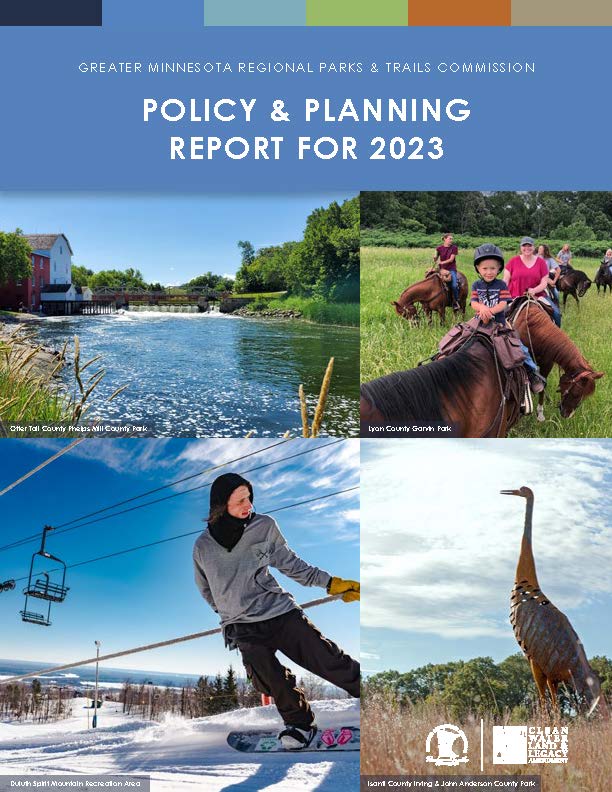


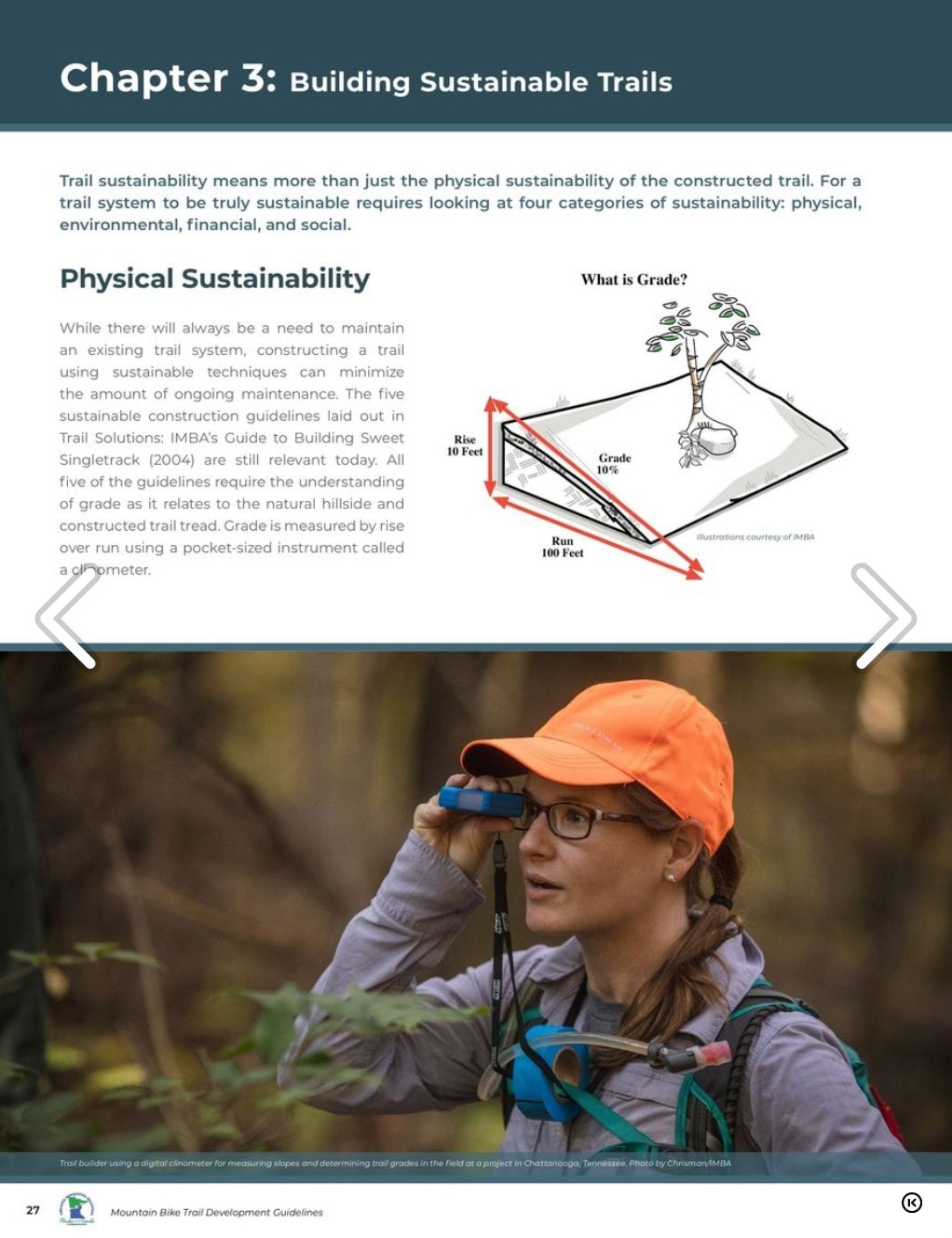
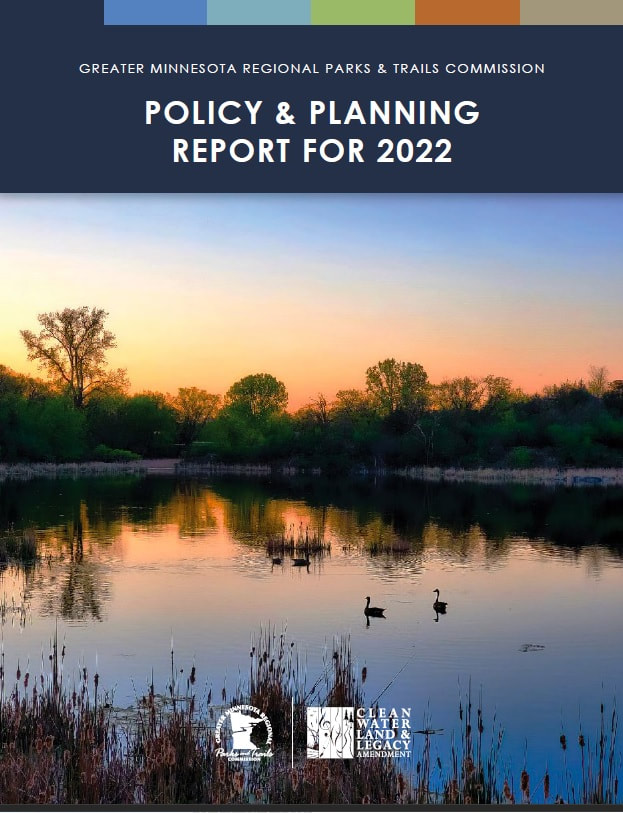
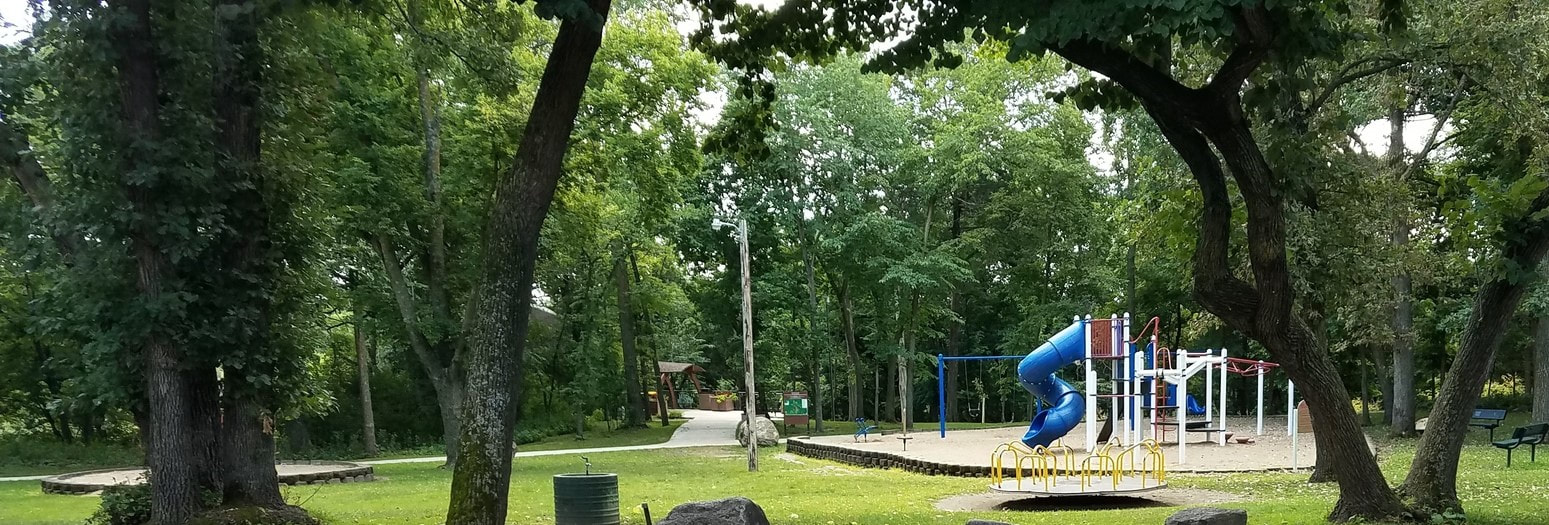
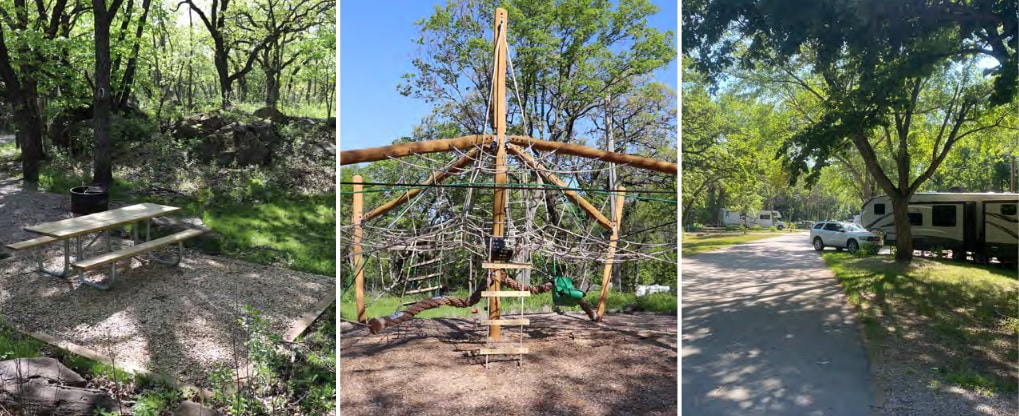
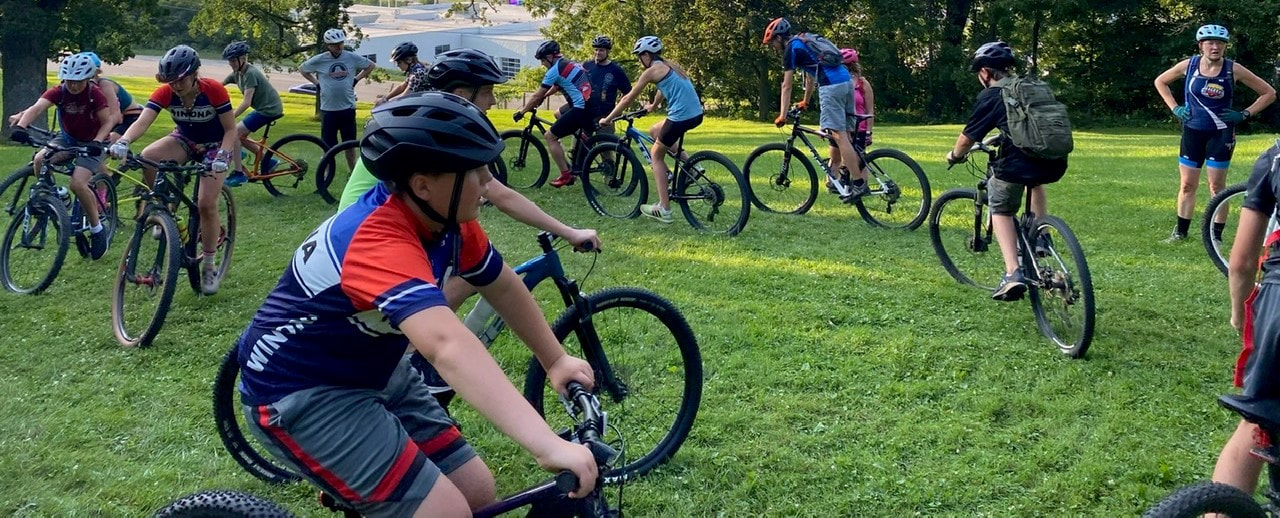
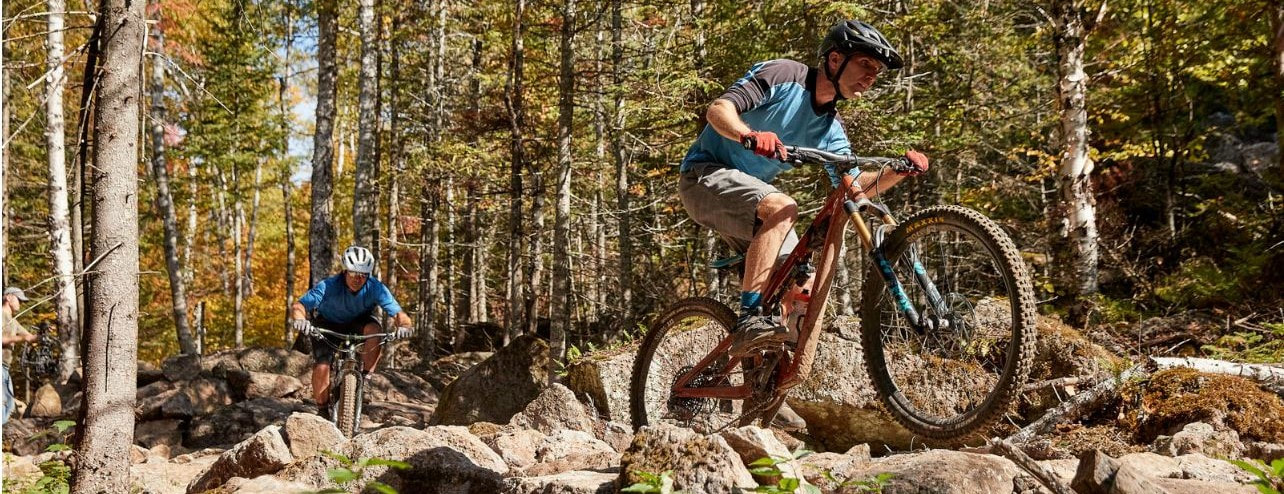

 RSS Feed
RSS Feed
